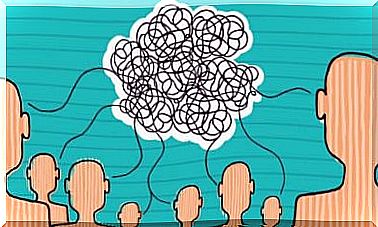Why Do We Need To Sleep?

Everyone needs sleep. There are people who need at least 8 hours of sleep each night, while for others 4 or 5 hours are enough. Be that as it may, without sleep it is impossible to live. It is one of the basic human needs. The side effects of sleep deprivation can be very harmful to our bodies and can even cause death.
A lack of sleep for a few days can seriously damage your body. If we only sleep a few hours a day, it can have a negative effect on us. It can affect us mentally, physically and mentally. In addition to this, the sleepless hours we lost cannot be restored. Even a nap does not eliminate the effects of lack of sleep, and they can actually make things worse.
Obviously we really need to sleep, but why is it so necessary? What happens to our brains when we sleep? What happens if we stop sleeping? Science has tried to answer all of these questions by trying to replicate the conditions of natural sleep in different laboratories. While there is still much to be clarified, the following are some observations.
What happens to our brains when we sleep?
Prior to these studies, it was believed that when we rest, our brains are not “connected”. Experts thought that the activity of the nerve cells almost stopped. However, it has been shown that this is not the case and that some parts of the brain are still very active even at night.

As we go through different stages of sleep, our brain function changes. Most of the activity is detected in the REM phase. This activity is recorded by observing brain waves – patterns similar to the vibrations found by analyzing the brain activity of an awake person. Similarly, in the slow sleep phase, simultaneous activation of neuronal groups every 4 seconds was observed , indicating that the brain is also active at this stage.
Effects of sleep deprivation
There are few people who have never suffered from insomnia, either regularly or occasionally. When we don’t sleep well during the night, the next day we have several physical and mental symptoms that make the day a coping exercise. The main symptoms of sleep deprivation are:
-
Irritability
-
Fatigue
-
Lack of concentration
-
Nervousness
-
Headaches
-
Memory disorders
These are some of the side effects of sleep deprivation. But how long can we really last without sleep? When can lack of sleep become dangerous? The record holder is Randy Gardner , who volunteered to do an experiment where he just had to stay awake. He lasted a total of 264 hours (11 days).
After a few hours, he began to get nervous and have difficulty concentrating. After 4 days of experimentation, he started experiencing hallucinations and even believed he was a famous football player. However, he had no side effects after the experiment was over. According to data obtained from experiments in rats and people with familial fatal insomnia , the maximum time a person can be without sleep is 3-4 weeks.
Fatal familial insomnia
Fatal hereditary insomnia (or fatal familial insomnia) is a potentially dangerous autosomal dominant genetic disease. In this hereditary disease, the brain produces and accumulates certain prions (an infectious substance made up entirely of protein material) due to a chromosome 20 mutation. This abnormal buildup causes brain degeneration that affects the thalamus in particular .
The brain degeneration caused by this disease causes many serious symptoms. These include persistent insomnia, memory impairment, difficulty moving, compulsive movements, and weight loss. This inability to sleep can last from days to weeks. Patients are awake for long periods of time before they finally fall into a coma.

Decay of the thalamus causes a person to be constantly alert and awake. All treatments commonly given to patients with insomnia are useless for this disease. Although it is a rare disease, 13 cases have been reported in the Spanish provinces of Navarre and the Basque Country, for example. There is currently no cure for this disease.
The importance of sleeping well
Experts recommend 7 to 8 hours of sleep a day. However, this may vary with age or health. For example, young children need more sleep because it is a critical time for their cognitive development and learning processes. Pregnant women must also increase the number of hours slept.
Sleeping is very important, but it must also be refreshing. It is important that the sleep phase (step 4) and the REM phases are satisfactory. During stage 4, metabolism and blood flow in the brain are reduced by 75% compared to waking. Scientists now know that the purpose of this is to remove free radicals that can damage the brain.
Slow sleep is combined with activities such as energy conservation, physical and neurological repairs, and protection. On the other hand, REM sleep is associated with memory pooling.
As you can see, we mentioned several vital bodily functions, and it is clear that sleeping not only makes us feel better – it also renews our bodies and our biological clock.








